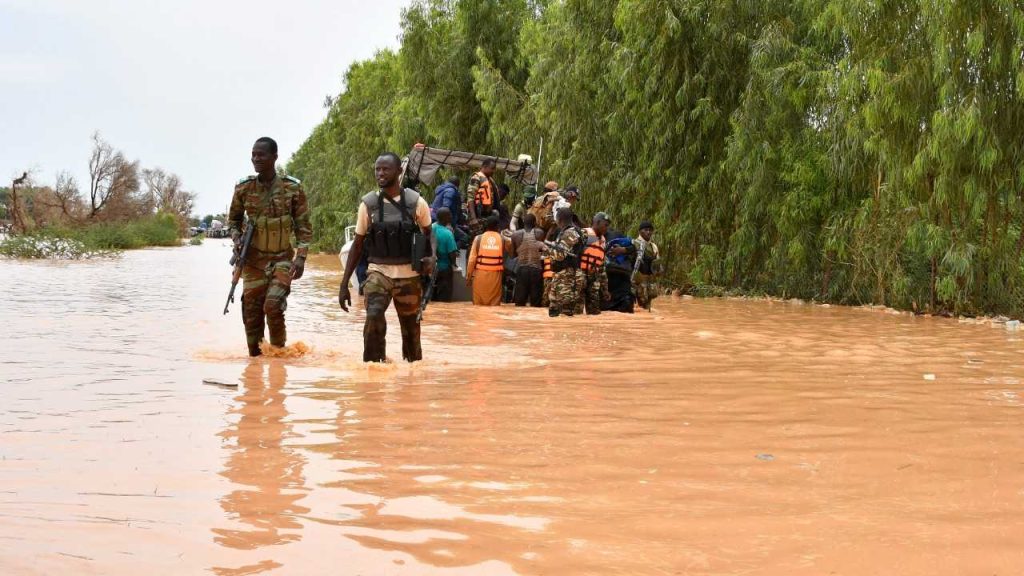Floods force Niger to delay new school year
2 min read

Niger’s new school year has been postponed nearly a month due to severe rainfall and flooding, according to officials from the military government. The start date, originally scheduled for October 2, has now been moved to October 28, as many schools have been damaged and others are currently occupied by flood victims.
Heavy downpours have ravaged the West African nation over the past few weeks, leading to over 300 fatalities from drowning and building collapses, as reported by the interior ministry. The central-southern city of Maradi has been one of the hardest-hit regions, where around 100 tents have been set up to shelter displaced individuals within school premises.
The International Rescue Committee has highlighted the scale of the disaster, stating that more than 800,000 people have been adversely affected by the flooding. This calamity is part of a broader trend affecting several West African nations, including Mali and Nigeria, which are experiencing some of the worst floods in three decades.
Niger, like many countries in the semi-arid Sahel region, is grappling with the severe impacts of climate change. While floods have wreaked havoc, the country has also faced recurring droughts and agricultural failures in recent years. Experts warn that such extreme weather phenomena are becoming more frequent and severe due to climate change, exacerbating the vulnerability of already marginalized communities.
In response to the crisis, the military government has distributed 9,700 tonnes of grain to assist those in need, asserting that the situation is under control. However, the challenges posed by the floods are not just immediate; they also threaten the cultural heritage of the region. Recent reports have raised alarms about the destruction of historically significant buildings. For instance, a 19th-century mosque in Zinder, constructed from wood and straw, recently collapsed, underscoring the precarious state of many structures.
Concerns also loom over the potential damage to Agadez, a city known as the gateway to the desert and home to a UNESCO World Heritage Site. The historic center of Agadez is of immense cultural significance, and its preservation is crucial for both the local community and global heritage.
As schools prepare to eventually reopen, the hope is that recovery efforts will not only focus on restoring education but also on strengthening infrastructure to withstand future climate challenges. Community leaders and international organizations are working to provide additional support, but the road to recovery will be long and demanding.
In summary, the flooding crisis in Niger highlights the urgent need for comprehensive strategies to address climate change impacts, improve disaster preparedness, and safeguard cultural heritage. The delayed academic year serves as a stark reminder of how environmental disasters can disrupt lives and communities, necessitating a coordinated response to build resilience for the future.